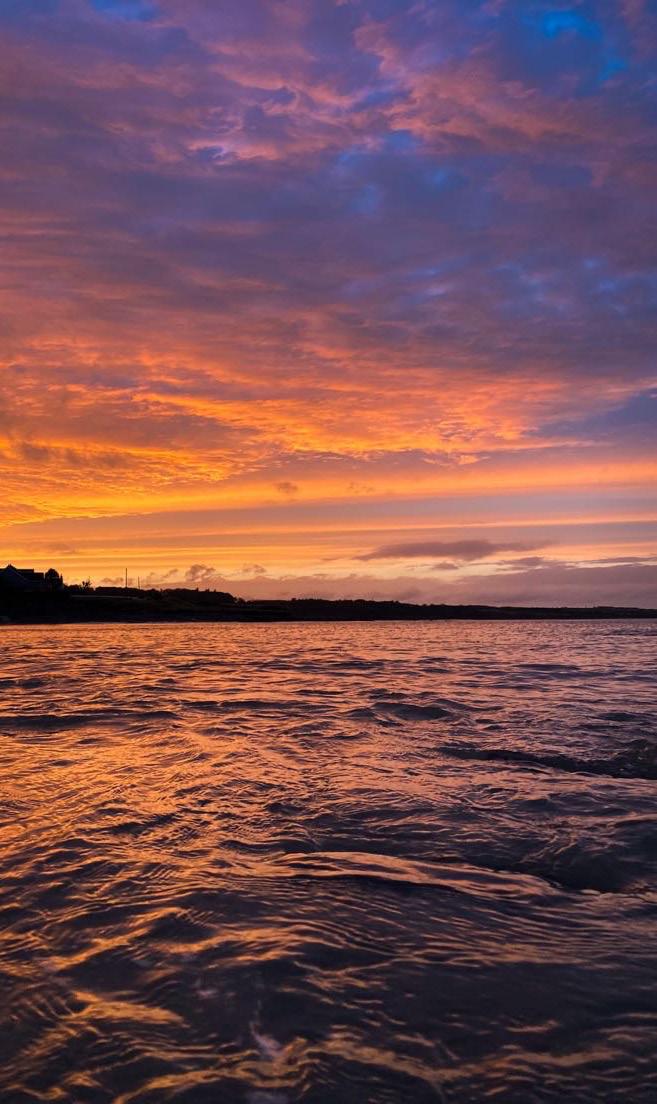Page 79
Interview
An Interview with Environmental Justice Solicitor Rebecca Keatinge By Emma Bowie, JS Law Rebecca Keatinge is an environmental justice solicitor working with the Community Law and Mediation Centre (CLM), an independent, community-based organisation that works to empower individuals experiencing disadvantage by providing free legal information, free legal advice, education and mediation services. What drew you to working in the area of refugee and migrant rights after completing your History and Political Science degree in Trinity? After my undergraduate degree, I moved to London and did a master’s degree in international development, and as part of my course I had the opportunity to study migration and development theory. I then interned at the UN Refugee Agency in London with their public information unit. The protection team there worked on legal cases, which I found really interesting. After my internship, I started working as a caseworker for an organisation in London which provided asylum-seekers and refugees with legal aid … It was a great way of getting experience in that area of law, without needing to be a fully qualified solicitor. In the UK, an accredited caseworker can appear before tribunals and present cases and bail applications, and that was a great learning curve in terms of advocacy. Having the opportunity to work with individual applicants was a real privilege, especially as they would often share details about their personal journeys and situations. After working with the organisation Refugee and Migrant Justice, you undertook the training required to become a solicitor in Ireland. Why did you decide to pursue a legal education after working with an NGO? When I was working in that sector, I could see that there was a glass ceiling in terms of what I could do as an accredited caseworker. Ultimately, if you want to bring an application for judicial review, or represent a client in the higher courts, you need to be a qualified solicitor. The team of solicitors working with Refugee and Migrant Justice would bring judicial review applications of decisions relating to the cases that I was working on. They would also bring as applications to the Home Secretary - sometimes in the middle of the night - with the purpose of preventing deportations. It was really exciting and impactful work, and I knew that a qualification was necessary if I wanted to progress down the legal route. I think the legal route is quite attractive in that you can advise someone as to the outcome of a net issue, and achieve positive change at an individual, micro level. I started studying for the FE1s while I was working with the UN Refugee Agency in Cambodia on sabbatical from my job in London, and sat my exams when I returned to Ireland. For me, the human story at the heart of a legal case is where it is at – even when you’re studying law, it is the stories behind the cases that help you remember them, be it the snail in the bottle or obscure maritime scenarios! That was definitely one of the things that attracted me to law … I also knew that with a legal qualification, I could work outside of refugee and immigration law, and help other communities experiencing disadvantage. You were recently appointed as the new Environmental Justice Solicitor of the Community Law and Mediation Centre in Coolock. Could you tell us about the aims of the recently established Centre for Environmental Justice? CLM is forty-five years old this year, and is firmly rooted in the social justice sector in Ireland. Over the past couple of years, the Centre has been seeing environmental issues become more prevalent in its own work, while also observing the emergence of climate justice movements in countries such as America, the Netherlands, or




















